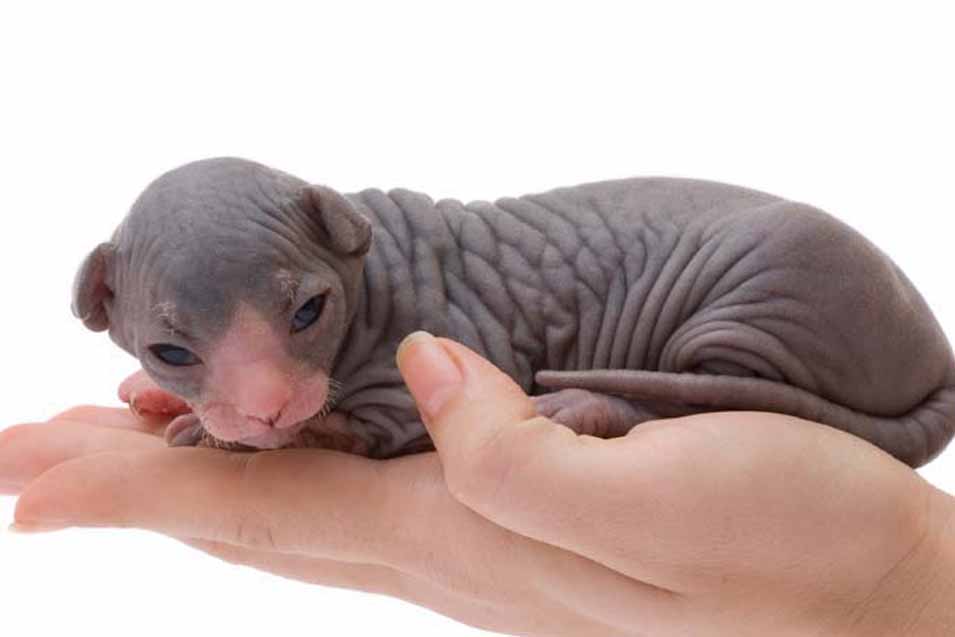
If you find a litter of orphaned kittens, or if your mama cat has serious health issues and is not taking care of her babies, you may have to step in and care for the kittens. When feral cats have kittens you can take them from their mother and raise them to be tame so they can find loving homes. In either case you need to have to know something about raising kittens or you will need to find someone who does.
It is always best to allow the mother to care for the kittens herself, if possible, so the kittens can get natural immunities from their mother’s milk. When it isn’t possible for the mother cat to raise the kittens, you can contact your local animal rescue to see if there is a surrogate mother that can help out. Putting kittens with another mother cat should be your first choice; if this cannot happen then stepping in and helping the kittens is the best alternative.
Congratulations! You are the Proud Mommy of a Litter of Kittens! Now What?
When you can’t find a proper mother cat to care for kittens you have to step in and care for them or allow them to die, which just doesn’t seem to be a good option. Caring for orphaned kittens is more complicated than just giving them a bottle a couple times a day. If kittens aren’t taken care of when they are newborn they are unable to eliminate waste products properly and can die, even if you are feeding them well. A kitten needs:
- Warmth
- Stimulation to eliminate
- Hydration
- Nutrition
- A quiet safe place to rest
- Parasite removal
- Socialization when old enough
When you find abandoned kittens you should take them to the vet to see if they need any special care. If you are unable to wake the kittens or get them to react there may be serious health issues that require a vet’s assistance. If your vet isn’t available you can follow basic steps to keep the kitten alive.
Providing Warmth
When you find a kitten or kittens you need to provide warmth. Mother cats cuddle with their babies and young kittens huddle together to stay warm. If a kitten is not warm giving it food will kill it. The kittens will not have the strength to warm themselves and digest their food. It is important to warm the kitty by either putting it in your shirt or laying it on a heating pad that is turned on low.
Potty Time
Kittens are not only fed by their mothers, they are stimulated to eliminate as well. The mom licks the baby kitten’s belly and anal region to stimulate elimination. If the kitten is not stimulated it will hold waste materials in its body. Toxins can then build up, causing health problems for the kitten.
To get a kitten to relieve itself you need to stimulate it like its mom would. Mother cats lick their kittens but you do not need to use your tongue, a washcloth works just fine. Gently but firmly rub the kitten in short strokes like its mother would along the belly and backside. Bathroom tissue can be used to stimulate urination as well by gently rubbing the area. Once the kitten has gone potty you need to make sure all of the waste material is removed from the kitten. Potty time should occur before and after feedings.
Hydration
Any animal that becomes dehydrated needs to have enough fluids given to them to counter this. Pedialyte infant electrolyte solution can be given to combat dehydration. This should be done in small amounts and if the kitten is sick this should be done with supervision. Do not force the kitty to drink anything. Once the kitten is properly hydrated and ready to eat you can offer food.
Dinner Time
The age of the kitten is going to decide how often and how much you feed it. Kitten formula is available in most pet stores and farmer’s co-ops. Special bottles and droppers are also available. If the kitten is quite young you may want to look into feeding it goat’s milk or colostrum. You will have to feed your kitten often.
Warm the formula to body temperature before feeding so the kitten does not have to use precious strength to warm up the food before digesting it. Cold formula or milk can use more calories to warm up than it provides.
Starting with an eye dropper can be helpful. Tiny kitten bottles are another easy way to feed a kitten. Do not force feed a kitten. If the kitten is not attempting to eat vigorously you shouldn’t offer food at that time. Overfeeding, or putting too much into a kitten’s mouth when it is not ready, can cause the kitten to aspirate the fluid into its lungs and cause a lung infection.
Peace and Quiet
Kittens are cute. Your children, neighbor’s children, the neighbor’s children’s children and such will flock to take a peek at your new baby and touch it and talk to it and such. This may seem harmless but it can be quite stressful for a growing infant cat. One of the main things that a kitten needs is silence.
Providing a safe, protected and quiet area for the kitten or kittens to rest between feedings and elimination sessions is important. If you can, provide a warm dark area for the kittens. If not, a warm undisturbed area is fine.
Parasite Removal
Fleas can zap an infant kitten’s strength as fast as lightening. Combing your kitten can help to remove fleas from its fur. Using flea poisons on the skin or the bedding can be toxic to kittens if they are too young. Before using these preparations on your kitten discuss it with a vet. Intestinal worms and other parasites are in the same category. Discuss these issues with your veterinarian to decide what is best for the kittens.
Socializing
Once the kittens are old enough you can start socializing them. Orphaned kittens can grow up to be healthy, self assured cats and wonderful pets if you start socializing them with humans and other household pets between 4-8 weeks of age. The older a kitten is when you start socialization the less likely it is to have positive results. If you want to have a loving pet you need to work with the kitten at a young age. This will allow it to know you are a family member and not some large alien creature that is going to attack at any given moment.





